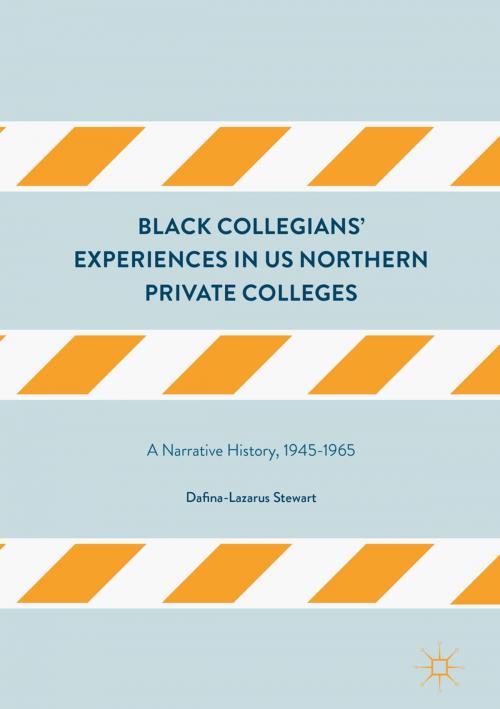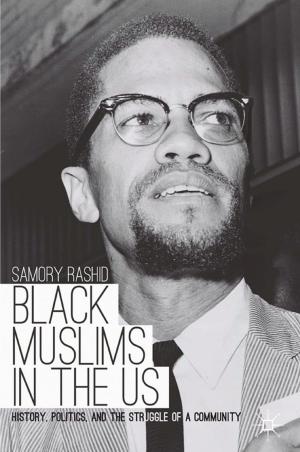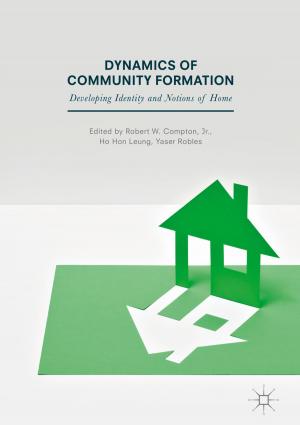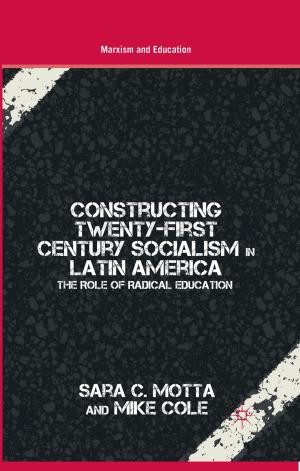Black Collegians’ Experiences in US Northern Private Colleges
A Narrative History, 1945-1965
Nonfiction, Reference & Language, Education & Teaching, History, Higher Education| Author: | Dafina-Lazarus Stewart | ISBN: | 9781137590770 |
| Publisher: | Palgrave Macmillan US | Publication: | April 22, 2017 |
| Imprint: | Palgrave Macmillan | Language: | English |
| Author: | Dafina-Lazarus Stewart |
| ISBN: | 9781137590770 |
| Publisher: | Palgrave Macmillan US |
| Publication: | April 22, 2017 |
| Imprint: | Palgrave Macmillan |
| Language: | English |
This book is a narrative study of the lives and experiences of sixty-eight Black collegians in a set of northern private colleges in the Midwest between 1945 and 1965. Through oral histories and archival material, this text documents and reflects on their experiences in the racially isolated, northern, rural towns in Ohio, Michigan, Indiana, and Western Pennsylvania. This history illuminates both the empowerment of these collegians and the persistent challenges of enacting institutional values in the face of resistance from both outside and within. Stewart seeks to understand the nature of progress toward pluralistic diversity in college environments characterized by the paradox of racial homogeneity and interracial engagement. In this way, the complex interplay of social movements, institutional context, individual identities, and the experiences of marginalized students in postsecondary education are more effectively demonstrated.
This book is a narrative study of the lives and experiences of sixty-eight Black collegians in a set of northern private colleges in the Midwest between 1945 and 1965. Through oral histories and archival material, this text documents and reflects on their experiences in the racially isolated, northern, rural towns in Ohio, Michigan, Indiana, and Western Pennsylvania. This history illuminates both the empowerment of these collegians and the persistent challenges of enacting institutional values in the face of resistance from both outside and within. Stewart seeks to understand the nature of progress toward pluralistic diversity in college environments characterized by the paradox of racial homogeneity and interracial engagement. In this way, the complex interplay of social movements, institutional context, individual identities, and the experiences of marginalized students in postsecondary education are more effectively demonstrated.















